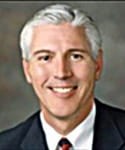Investing in Education
-
Everett Piper Everett Piper's Blog
- Updated Jan 28, 2011
Note: To listen to
this blog on KWON/KYFM radio go to http://www.bartlesvilleradio.com/caffeine/uploads/files/ON%20Demand/Ideas%20Matter/Ideas%20matter%2039%20complete.mp3
In his State of the Union address this week, President Obama
called for more spending on education. While many of us instinctively agree
that such an "investment" is good, have we ever stopped to ask a basic
question: Education for what purpose?
You see, there was a time when all of our schools were dominated
by a specific worldview. The goal of American higher education during its first
two hundred years was not only to propagate knowledge but also to advance civic
duty, to nurture moral development, and to encourage personal and corporate responsibility.
Regardless of the vocation for which students were preparing,
colonial colleges from Dartmouth to Princeton sought to provide an education
that was distinctly moral and, yes, even Christian. Examples of this are
replete in the early mission statements of Ivy League schools such as Harvard, which
admonished, "Let every student consider well the main end of his life and
studies is to know God . . . [and] to lay Christ at the bottom, as the only
foundation of all sound knowledge and learning," and Yale, which likewise
declared that the goal for its students was "to know God in Jesus Christ and .
. . to lead a Godly [and] sober life."
So when someone tells you they want to spend more money on education,
ask why. Ask if our future CEOs, CFOs, politicians, preachers, and teachers
should graduate knowing more about what is right and wrong rather than less. Ask
if our universities should be teaching bankers, accountants, doctors, and
lawyers about why it is good to tell the truth and bad to tell a lie. Ask them
if we should be spending our money to defend a certain ethical code rather than
tear it down. Ask if they believe Harvard and Yale might have had it right in
the first place.



















